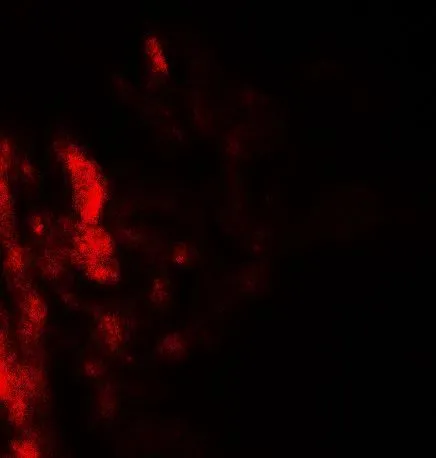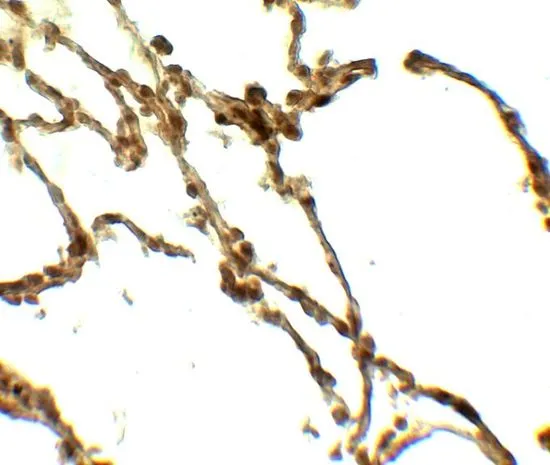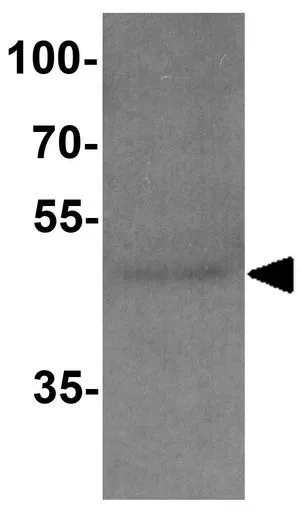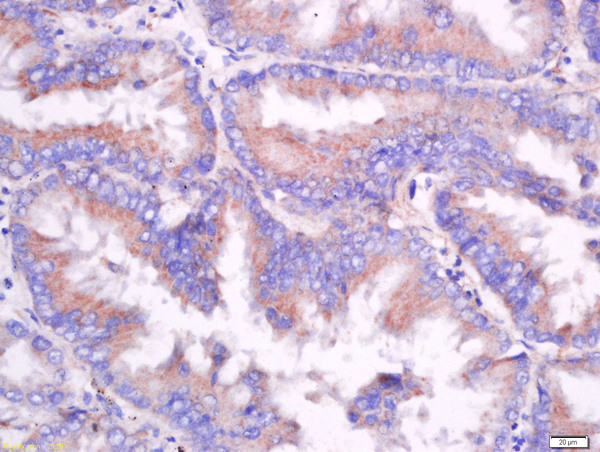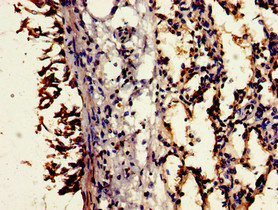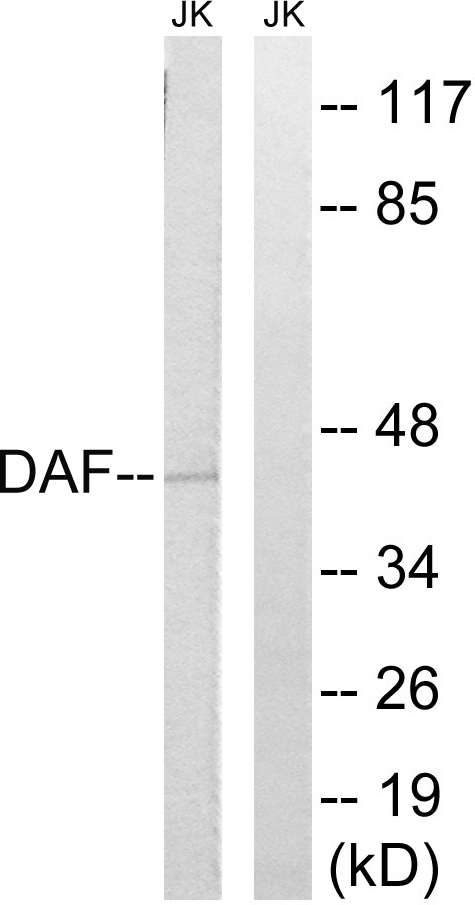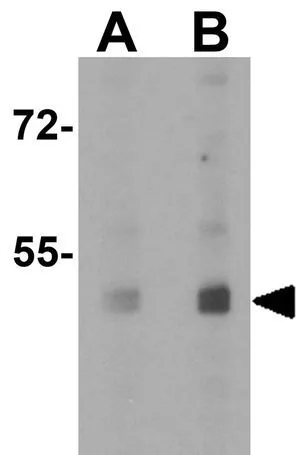
WB analysis of HeLa cell lysate using GTX31932 CD55 antibody. Working concentration : (A) 1 and (B) 2 μg/ml
CD55 antibody
GTX31932
ApplicationsWestern Blot, ELISA, ImmunoHistoChemistry, ImmunoHistoChemistry Paraffin
Product group Antibodies
ReactivityHuman
TargetCD55
Overview
- SupplierGeneTex
- Product NameCD55 antibody
- Delivery Days Customer9
- Application Supplier NoteWB: 1 - 2 microg/mL. IHC-P: 5 microg/mL. *Optimal dilutions/concentrations should be determined by the researcher.Not tested in other applications.
- ApplicationsWestern Blot, ELISA, ImmunoHistoChemistry, ImmunoHistoChemistry Paraffin
- CertificationResearch Use Only
- ClonalityPolyclonal
- Concentration1 mg/ml
- ConjugateUnconjugated
- Gene ID1604
- Target nameCD55
- Target descriptionCD55 molecule (Cromer blood group)
- Target synonymsCHAPLE, CR, CROM, DAF, TC, complement decay-accelerating factor, CD55 antigen, CD55 molecule, decay accelerating factor for complement (Cromer blood group), Cromer blood group antigen, Rh blood group D antigen
- HostRabbit
- IsotypeIgG
- Protein IDP08174
- Protein NameComplement decay-accelerating factor
- Scientific DescriptionThis gene encodes a glycoprotein involved in the regulation of the complement cascade. Binding of the encoded protein to complement proteins accelerates their decay, thereby disrupting the cascade and preventing damage to host cells. Antigens present on this protein constitute the Cromer blood group system (CROM). Alternative splicing results in multiple transcript variants. The predominant transcript variant encodes a membrane-bound protein, but alternatively spliced transcripts may produce soluble proteins. [provided by RefSeq, Jul 2014]
- ReactivityHuman
- Storage Instruction-20°C or -80°C,2°C to 8°C
- UNSPSC12352203

